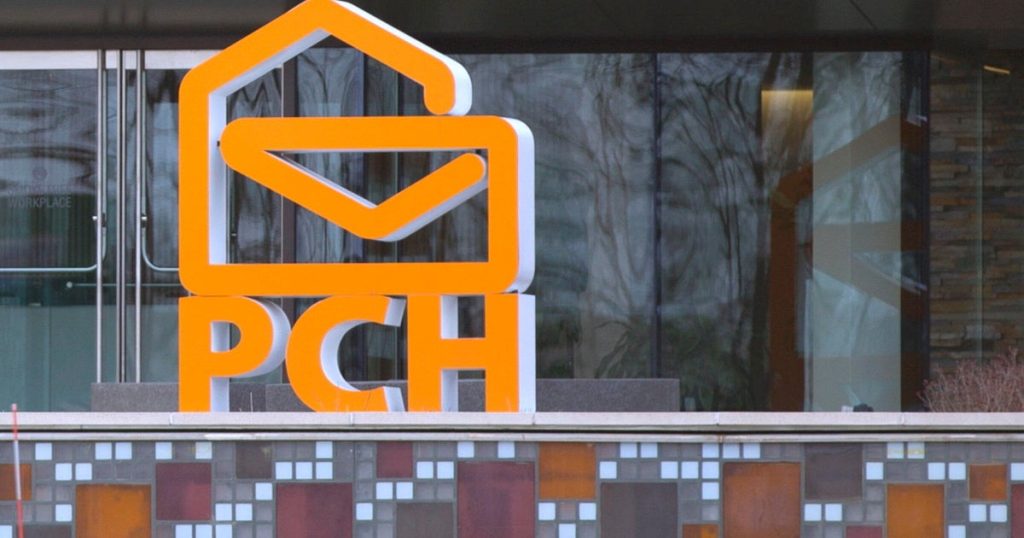Publishers Clearing House (PCH) is making headlines for a different reason—offering refunds to consumers misled by the company’s marketing tactics. In a recent action by the Federal Trade Commission (FTC), PCH has been mandated to distribute checks amounting to over $18 million to nearly 282,000 customers. The settlement follows allegations of “deceptive and unfair” practices related to their sweepstakes entries. This marks a significant regulatory intervention aimed at protecting consumers from misleading commercial practices.
| Article Subheadings |
|---|
| 1) Overview of the FTC Settlement |
| 2) Allegations Against Publishers Clearing House |
| 3) Consumer Eligibility for Refunds |
| 4) Implications for Marketing Practices |
| 5) Consumer Guidance and Resources |
Overview of the FTC Settlement
The Federal Trade Commission has recently taken a decisive step in addressing deceptive marketing practices by Publishers Clearing House, a well-known entity in the sweepstakes and direct marketing realm. The FTC announced that it has issued checks totaling over $18 million to approximately 282,000 consumers who were allegedly misled. This refund is part of a broader legal framework established by a 2023 lawsuit which accused PCH of utilizing misleading strategies. Such actions represent the commission’s commitment to safeguarding consumers from unfair commercial practices and restoring trust in legitimate marketing.
Allegations Against Publishers Clearing House
The FTC’s lawsuit centers around serious allegations that PCH employed “dark patterns” in its marketing communications. These are tactics designed to mislead consumers into believing that purchasing a product would enhance their chances of winning sweepstakes or, in some cases, that purchases were a prerequisite to participate. Additionally, the FTC claimed that PCH sent out emails with deceptive subject lines that suggested a connection to official documents such as government tax forms. This drew serious criticism from regulators concerned about consumer protection, highlighting the intricate web of misleading advertising practices often utilized in the digital marketing spectrum.
Consumer Eligibility for Refunds
In this settlement, consumer eligibility for refunds is strictly defined. Only PCH customers who engaged with the misleading emails and subsequently made a purchase are eligible for the refund. The FTC has been proactive in providing clear guidance for affected consumers, encouraging anyone who thinks they qualify for a refund to take immediate action. Refunds are a mechanism intended not only to compensate misled consumers but also to send a strong message to other companies about the importance of ethical marketing practices. For those seeking clarity on the refund process, resources are available on the FTC’s website.
Implications for Marketing Practices
This case raises critical questions about the marketing methodologies employed by companies within the sweepstakes sector. It serves as a reminder of the ongoing scrutiny from regulatory bodies such as the FTC, particularly regarding the ethical implications of consumer engagement strategies. The actions taken against PCH may lead to a more vigilant approach to consumer protection within the marketing community, signaling that deceptive practices will not be tolerated. Businesses need to evaluate their marketing tactics, ensuring they promote transparency and honesty in all consumer interactions to avoid future repercussions.
Consumer Guidance and Resources
For consumers who may have been affected by this settlement, it’s crucial to stay informed. The FTC provides essential resources to assist customers in understanding their rights and the steps they need to take to claim refunds. They can visit ftc.gov/PCH to access detailed information, or contact the refund administrator at 1-888-516-0774 for personalized support. Educating oneself about consumer rights and being vigilant against misleading advertising is vital in today’s marketplace, where promotional tactics can often blur the line between legitimate offers and deceptive practices.
| No. | Key Points |
|---|---|
| 1 | PCH is set to refund over $18 million to consumers misled by their marketing practices. |
| 2 | The FTC’s lawsuit accused PCH of using “dark patterns” to deceive consumers. |
| 3 | Only customers who engaged with misleading emails and made purchases are eligible for refunds. |
| 4 | The settlement may lead to increased scrutiny and improved marketing practices in the industry. |
| 5 | Consumers can obtain information and support from the FTC regarding the refund process. |
Summary
In conclusion, the FTC’s action against Publishers Clearing House serves as a significant precedent in the realm of consumer protection and marketing ethics. By distributing refunds to misled consumers, the FTC aims to uphold fairness within the marketplace and reinforce the importance of transparent communication in advertising. As consumers become increasingly vigilant, it is essential that companies engage in ethical practices, ensuring they prioritize consumer trust and regulatory compliance.
Frequently Asked Questions
Question: Who is eligible for the refund from PCH?
Only PCH customers who clicked on misleading emails and made a purchase are eligible for the refund.
Question: What are “dark patterns” in marketing?
“Dark patterns” are deceptive marketing strategies designed to manipulate consumer behavior, often making them believe they are required to make a purchase to participate in promotions.
Question: How can consumers file for a refund?
Consumers can visit the FTC’s website or call the refund administrator for information on the steps to file for a refund.


